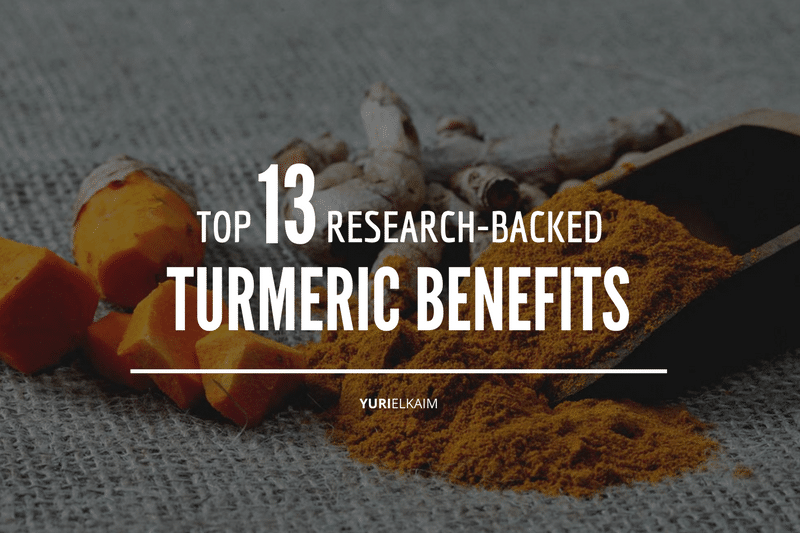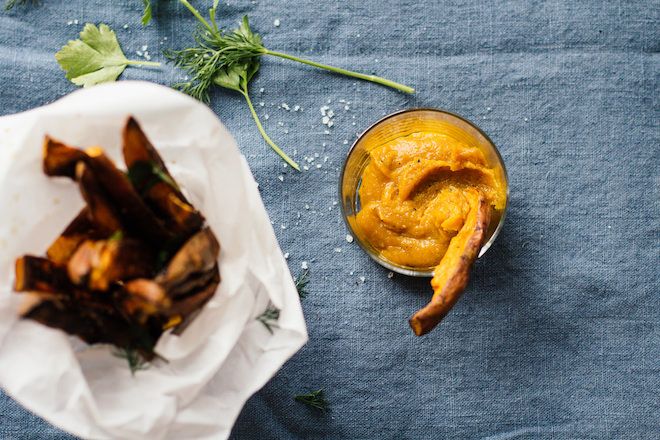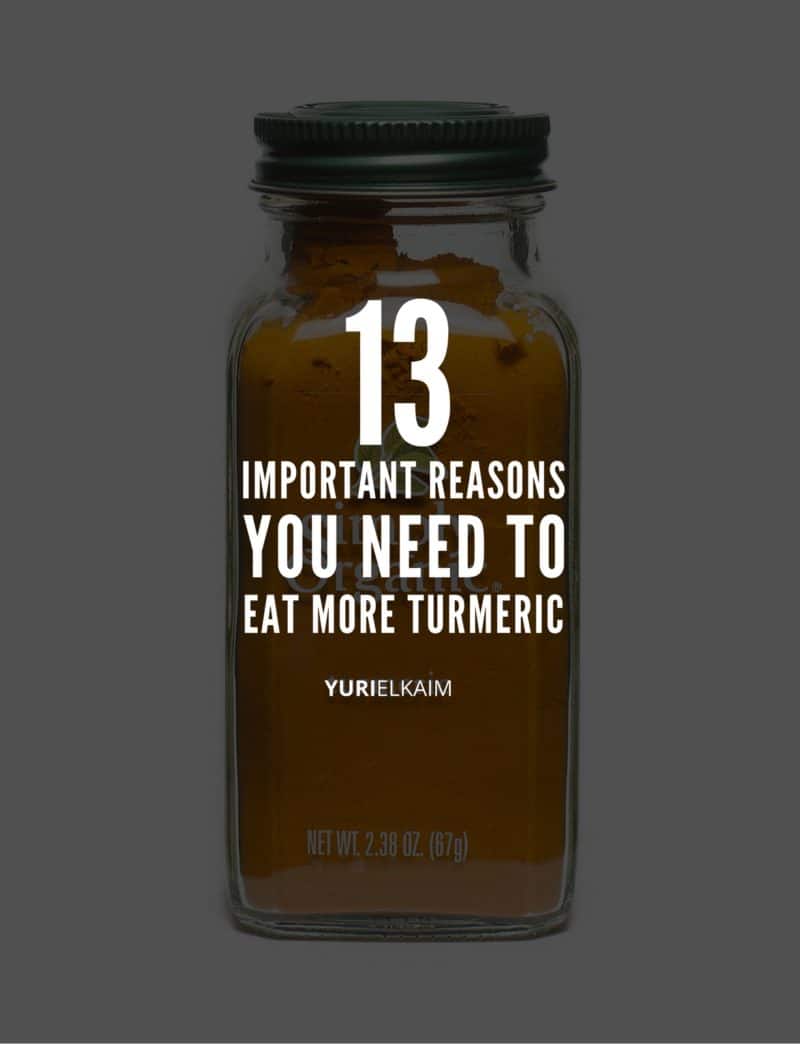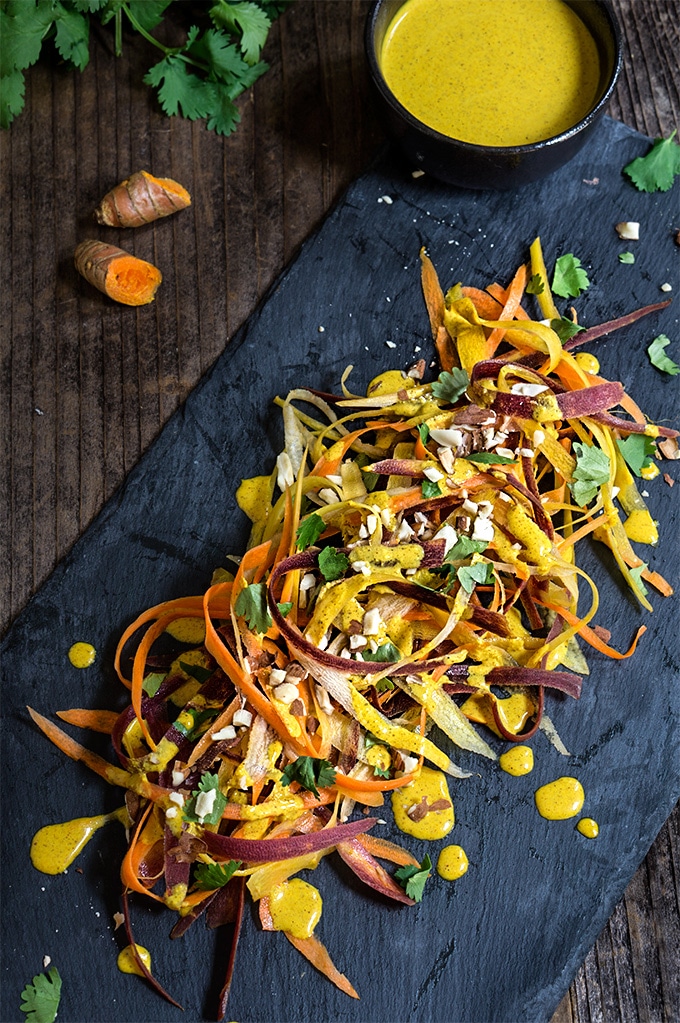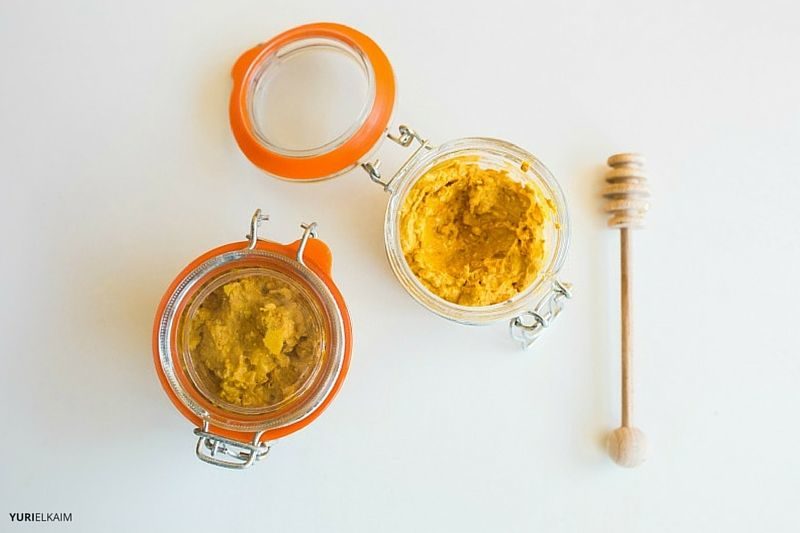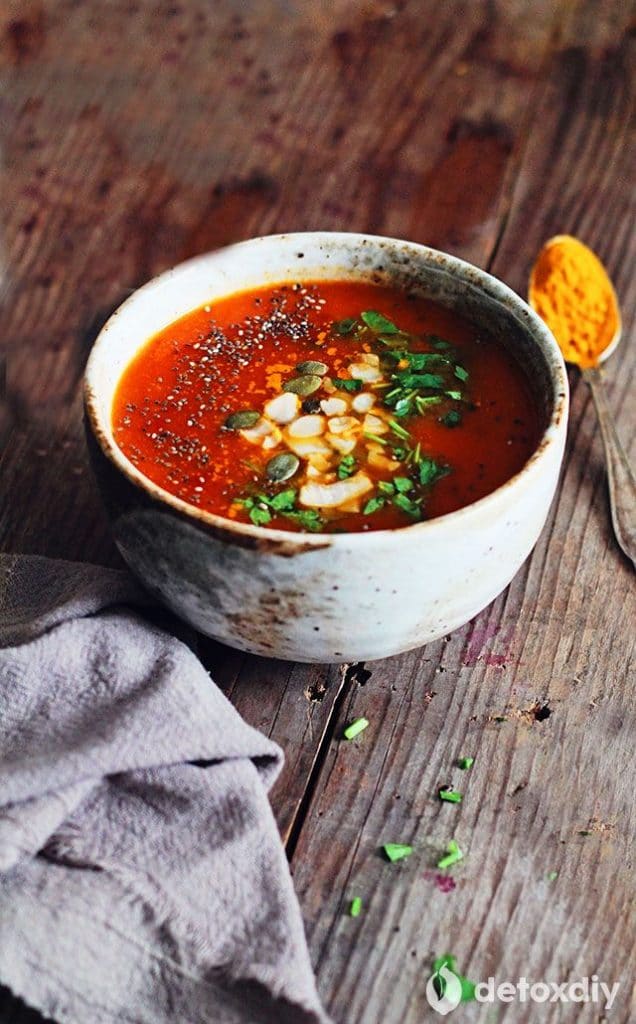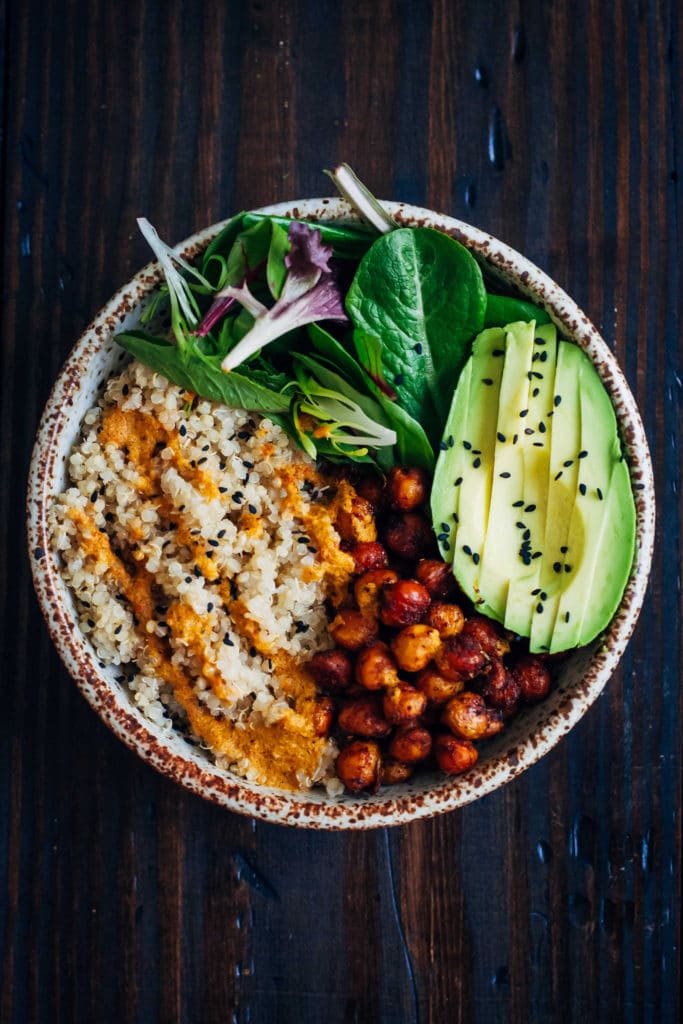In this article
Chances are you’ve seen the buzz in the news lately about turmeric, touting its amazing health benefits.
Whether you drink a mug of turmeric-laced milk daily or you order takeout curry from time to time, you’ve probably consumed this bright yellow Indian spice at some point in your life.
The hype over turmeric appears to be well-deserved, as a horde of recent studies have shown that the active chemicals in turmeric – curcumin and volatile oils – have a wide range of antiviral, anti-fungal, anti-inflammatory, anti-tumor and nervous-system-protecting capabilities.
But before we dive deeper into its benefits, let’s start with a little background.
Turmeric, a plant native to India, has been in use for thousands of years and has been called “Indian Saffron” because of its yellow-orangish color.
In the same plant family as ginger, you probably know it’s a key ingredient in almost all curry powder spice mixtures.
But far beyond the flavor it imparts food, turmeric’s benefits have made it one of the most important natural remedies in traditional Ayurveda and Siddha medicine.
Its use continues to grow in Western medicine and nutrition, as does the ever-expanding list of health conditions that turmeric’s benefits can improve and/or prevent.
How to Maximize the Benefits of Taking Turmeric
Pictured: Simple Sweet Potato Fries with Turmeric Tahini Dip via Nutrition Stripped
If you are using the spice in its powdered form, as seen in the supermarket spice aisle, researchers recommend taking about 1 teaspoon each day to ensure you’re getting all of the benefits of turmeric (1).
And if you are taking a turmeric or curcumin supplement, about 400 mg three times per day is recommended.
Speaking of supplements, you might wonder whether it’s healthier to consume turmeric in its powdered form (for example, in curries or in a glass of warm milk) or in pill form.
There’s no evidence so far that suggests either option is superior – turmeric supplement benefits are equal to the benefits of turmeric spice itself.
The only real difference between the two is that supplements allow you to ingest a larger dose more quickly.
However, if you do take a supplement, look for one that contains black pepper.
Why? Because black pepper increases your body’s absorption of curcumin when you ingest the two spices together (2). Likewise, if you put turmeric in your food, be sure to always add some black pepper (even ¼ teaspoon can make a huge difference) to the dish.
Fat can also increase your body’s absorption of curcumin when eaten together – it helps the compound bypass your liver and head straight into your lymphatic system. This may be why turmeric is often consumed alongside ghee, or clarified butter, in Indian cuisine.
Top 13 Benefits of Taking Turmeric
1. It’s Good for Your Heart
First, turmeric reduces total cholesterol, as well as the levels of bad cholesterol (LDL, or low-density lipoprotein) in the blood (3).
How? The curcumin in turmeric acts as a message-carrying vehicle in your bloodstream, stimulating genes in your liver to step up the production of LDL receptors.
Those extra LDL receptors bind to the LDL in your blood and help to clear it from the body.
Second, curcumin’s antioxidant properties prevent the oxidation of LDL cholesterol (4).
This is important because oxidized cholesterol is a killer. It deposits on blood vessel walls, forming plaque, which is responsible for the narrowing and hardening of arteries.
By reducing the oxidation of LDL, turmeric may help reduce the risk of strokes and heart attacks.
What’s more, the abundance of vitamin B6 in turmeric may also help reduce the levels of homocysteine in the blood. Homocysteine has been linked with plaque buildup, narrowing and hardening of blood vessels, and the onset of heart disease.
2. It Helps Calm Inflammation
The essential oils and curcumin in turmeric are incredibly anti-inflammatory (5).
As a result, it can help ease symptoms of many immune diseases including lupus and rheumatoid arthritis by targeting inflammation, and even help alleviate allergies.
In several studies, turmeric can reduce the pain and inflammation of arthritis, muscle strains, joint pains and toothaches as well as help heal wounds and bruises. It has been found to be just as effective an anti-inflammatory agent as ibuprofen, but without ibuprofen’s gastrointestinal side effects (6).
Also, its potent antioxidant quality battles free radicals in the blood (7).
This is important because free radicals create havoc in the body and can be responsible for inflamed and painful joints, muscles or other tissues.
Turmeric may also be helpful if you suffer from inflammatory bowel disease (IBD). Recent studies have claimed that very low doses of turmeric can reduce IBD symptoms. A study conducted on mice suggested that adding curcumin to their diet protected them from IBD (8).
3. It Fights Cancer
Over the past several decades, scientific studies have shown that turmeric or curcumin is a potent anti-cancer agent (9, 10).
Research suggests that turmeric helps battle cancer: preventing it, slowing its spread (10), stopping precancerous changes from becoming full-blown cancer, making chemotherapy treatment more effective, and protecting cells during radiation.
In fact, it has even been found effective in helping to treat solid organ tumors (11).
Scientists are continuing this promising exploration into turmeric’s anti-carcinogenic effects.
Pictured: Carrot Almond Salad with Turmeric Coconut Dressing via Viktoria’s Table
4. It Can Ease Cystic Fibrosis
Cystic fibrosis (CF), a fatal genetic disease, attacks patients’ lungs with thick mucus, not only making it hard to breathe but harming digestion and making it hard for the body to absorb vitamins, by clogging organs.
CF can also cause life-threatening infections.
Studies have shown that the curcumin in turmeric may work on a cellular level to prevent the buildup of mucus. In mice studies, it has also been shown to correct the genetic defect causing the disease (12).
5. It Helps Protect Your Brain
Turmeric also shows promise when it comes to neurological diseases such as multiple sclerosis (MS) due to its strong anti-inflammatory and neuroprotective properties (13).
Curcumin can cross the blood-brain barrier and several studies have evaluated the effects of curcumin from all fronts when it comes to nervous-system-related diseases: preventing, slowing or stopping their progression.
The studies suggest that curcumin works on a number of different levels in the body when it comes to neurodegenerative disease. In particular, it works with specific proteins key in Alzheimer’s Disease, boosts patients’ immune systems, and may block the progression of MS.
Curcumin may also be an effective pain reliever for neuropathic pain through its effects on opioid receptors and the descending monoamine system (14).
6. It Can Save You From the Effects of Bad Sleep
When you drink alcohol, especially in excess, it can damage parts of your brain that help regulate sleep. Namely, your daily serotonin level fluctuations and circadian clock (the approximately 24-hour internal cycle that helps your brain know when it’s time to sleep) are affected by alcohol consumption.
However, if you do decide to indulge in a few drinks, adding curcumin to your diet can partially undo the damage (15).
If you find yourself sleep-deprived from studying, studies in mice have also found that curcumin can be a protective barrier against the negative effects of not getting enough sleep, such as anxiety (16).
Pictured: Mexican Red Lentil Stew via Budget Bytes
7. It Can Ease Your Asthma Woes
If you’ve got asthma, a spoonful of turmeric might help you breathe easier.
Studies have shown that intranasal curcumin can undo some of the damage inflicted on asthma sufferers’ airways – for example, it can lessen smooth muscle thickening and the accumulation of inflammatory cells in the breathing passage (17).
8. It Can Improve Your Skin
Research suggests turmeric’s anti-inflammatory, antimicrobial, and antioxidant qualities may help reduce the effects of many skin conditions such as atopic dermatitis, alopecia, psoriasis, and vitiligo (18).
Turmeric is also an excellent remedy for acne, so much so that it’s becoming a common ingredient in over-the-counter facial creams and lotions.
Pictured: Turmeric Skin-Glowing Face Mask Home Remedy
When applied topically, the spice may also be an effective treatment for eczema due to these same properties (19)
Finally, when used in combination with activating light therapy, orally administered curcumin may be of therapeutic use to individuals who suffer from some kinds of psoriasis (20).
9. It Keeps Your Blood Sugar in Check
Turmeric has the ability to lower and regulate blood sugar in a variety of different populations.
Rat studies have found that curcumin improves glucose tolerance (21). As we get older, blood sugar and triglyceride levels can get out of whack, and curcumin can help stimulate hormones to offset that effect (22).
When taken in combination with zinc, curcumin may be particularly effective in helping diabetes patients control their blood sugar and insulin levels (23).
10. It’s Great For Your Liver & Kidneys
Turmeric, and specifically curcumin, can protect you against liver damage by enhancing anti-aging processes (24).
The spice is also a great defense against fat buildup in the liver (which can cause non-alcoholic fatty liver disease) due to its ability to speed up fat transport out of the organ (25).
Its ability to lower levels of inflammatory molecules also render it a good therapy for chronic kidney disease (26).
11. It Helps Your Mental Health
Many of us pay a lot of attention to how our bodies look and function, but we ignore our brains. This is an unfortunate reality, as mental illness affects approximately 20 percent of American adults each year.
The good news is that turmeric can help ease or prevent many common mental health conditions. For example, it can ease the cognitive impairment often seen in pre-diabetes and dementia patients by improving working memory (27).
People who don’t eat fish or who stick to a plant-based diet should be particularly interested in turmeric’s high content of omega-3 fatty acid DHA, as DHA is particularly important for brain health and may help reduce anxiety (28).
Turmeric may even be an effective herbal antidepressant, although more research is needed in this new area of study. This is thought to be because curcumin influences several hormonal factors related to depression (29).
12. It Can Help You Boost Your Fitness
Want to improve your grip strength and endurance, and even recover faster from your workouts? Curcumin can help.
Mouse studies have found that curcumin supplements can both improve physical performance and reduce post-exercise markers of fatigue in the body. Muscular glycogen, an important energy source for exercise, was also found to be significantly increased after turmeric consumption (30).
This suggests that turmeric could be a great supplement for athletes.
Pictured: Turmeric Tomato Detox Soup via Detox DIY
13. It Can Save Your Hormones – Especially During Menopause
During menopause, many women turn to hormone replacement therapy (HRT) to treat osteoporosis and common menopause symptoms. However, curcumin may be a great replacement for HRT.
In fact, women who choose to use curcumin rather than HRT will avoid HRT’s several serious side effects, such as an elevated risk of breast cancer (31).
Why is turmeric a good alternative to HRT?
Oxygen stress occurs during menopause. Since curcumin is an antioxidant, it can help to prevent antioxidant deficiency during menopause. This may be especially useful for women who don’t eat enough fruits and vegetables, who have high levels of oxygen stress, or who can’t take HRT.
Curcumin may also help to circumvent osteoarthritis symptoms and decrease the expression of inflammatory cytokines in estrogen-deficient women (32).
How to Add Turmeric to Your Diet
Turmeric has a unique peppery, bitter taste. As mentioned before, it’s well-known for its use in curries and notorious for its beautiful bright yellow hue.
However, its use extends far beyond your typical curry dish.
Pictured: Roasted Cauliflower with Turmeric
Try some of these ideas to get some of the awesome turmeric benefits into your diet:
- Use it to season roasted cauliflower.
- Add it to a creamy salad dressing.
- Mix a teaspoon of peeled and grated turmeric into a rice dish.
- You can also add turmeric to avocado or tomato salsa.
- Warm a teaspoonful of turmeric in a glass of nut milk and have it at bedtime.
- Incorporate it into broths, soups or stews.
- Make a turmeric elixir or add it to a smoothie.
Experiment and come up with your own ideas.
Turmeric’s Side Effects
By now, you’re probably all fired up to add turmeric to your diet, aren’t you? Well, before you do, it’s important to note that this spice can have some side effects that may make it not-so-great for you if you struggle with certain health issues.
First, turmeric is a blood thinning agent (33).
For this reason, it may strengthen the effect of blood-thinning medications, thus raising your risk of bleeding. If you are taking any blood-thinning medications such as warfarin or aspirin, it’s probably a good idea to avoid ingesting large quantities of turmeric.
It’s also wise to avoid turmeric if you are pregnant or trying to get pregnant – the spice can cause uterine contractions that can increase your risk of miscarriage, bleeding, and painful cramps.
Do not take turmeric supplements or consume the spice in large quantities if you have a history of hyperacidity or dyspepsia. High intake could aggravate these conditions by increasing stomach acidity.
There is also a small risk of allergic reaction when you ingest turmeric. If you have a history of reactions to natural coloring agents, particularly yellow compounds, you may want to steer clear of turmeric.
Finally, turmeric may also inhibit platelet aggregation and interfere with blood clotting, so you should start avoiding consuming large amounts two months before any scheduled major surgeries.
A Tasty Way to Boost Your Health
Now that you know more about all of the wonderful benefits of turmeric, it’s time to start reaping these benefits in your day-to-day life.
Pictured: The Vegan Buddha Bowl via Well and Full
Make turmeric benefits an easy addition to your daily nutrition roster with these easy, healthy, and delicious recipes.
Take Control of Your Health!
Get my tried-and-true home remedies for skin, eye, and ear problems, colds and flu, and more.
The Natural Home Remedies Handbook will show you how you can feel better using items you likely already have in your pantry.
Click the image below to download it right now – for FREE!

